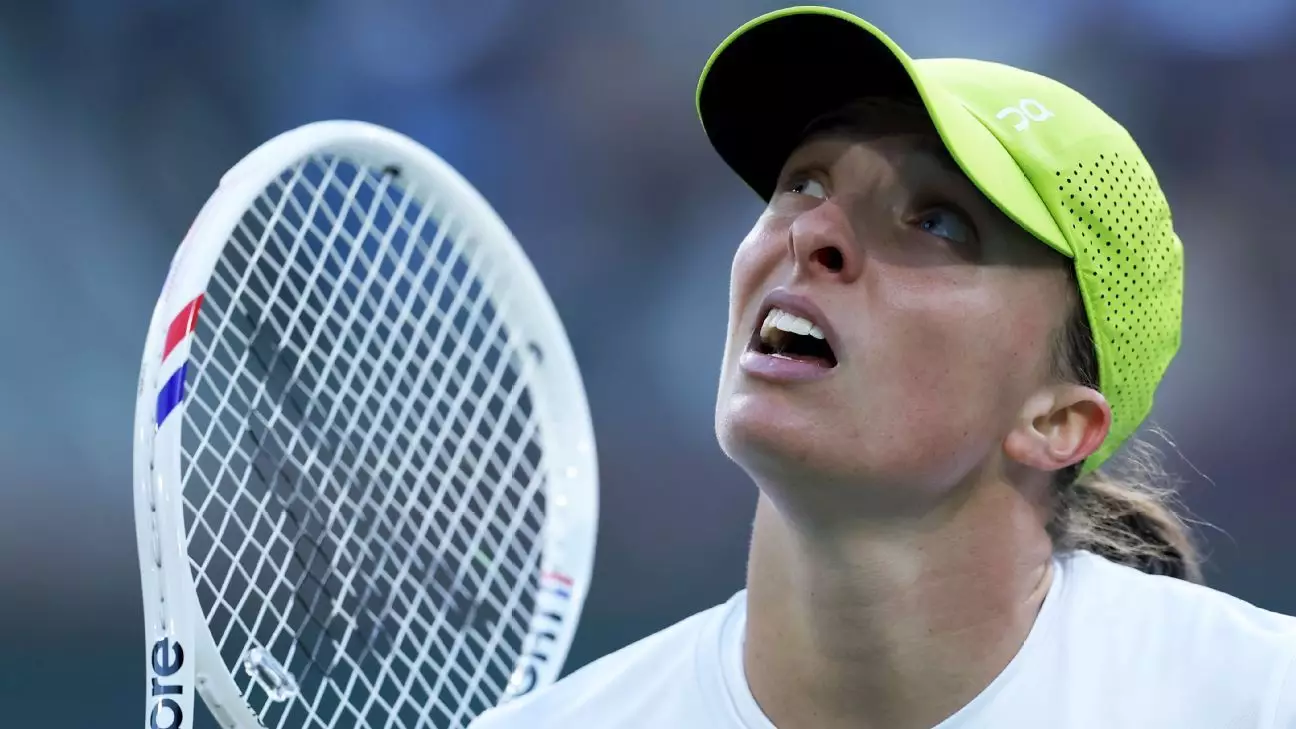In a strikingly candid social media post, Iga Swiatek has peeled back the layers of her emotional state, revealing the complexities that come with being an elite athlete in the spotlight. As a five-time Grand Slam champion, her journey has not just been about titles and trophies but has also involved grappling with the heavy burdens of public scrutiny and personal challenges. This is a narrative we seldom hear directly from the top athletes. Swiatek’s reflections carry genuine weight, shedding light on the emotional toll that comes with professional tennis, especially in light of her recent doping controversy.
Confronting Doping Allegations
Swiatek’s battle with a doping case brought with it a seemingly insurmountable strain. Her positive test for trimetazidine, a banned substance, painted a grim picture that many found hard to accept. The International Tennis Integrity Agency’s eventual conclusion that her positive result was due to contamination was a relief for the Polish athlete, but the ordeal still inflicted emotional scars. Acknowledging the challenges she faced during this period, Swiatek noted that she felt her career was hanging by a thread. This revelation showcases the human side of athletes, who often have their performances scrutinized but are seldom afforded the space to process their failures and challenges publicly.
Swiatek’s courage in discussing those “three weeks crying daily” reflects her vulnerability, drawing attention to the mental health struggles that often accompany the pursuit of excellence. She helps destigmatize these experiences by sharing them, ultimately encouraging a kinder dialogue about athlete mental health.
Public Judgment: The Double-Edged Sword of Fame
In today’s digital age, scrutiny is immediate and relentless. Swiatek’s recent incident during her match at Indian Wells—where an errant swing nearly involved a ball boy—highlighted just how quickly public opinion can sour. Instead of understanding the heat of the moment, many chose to vilify her for what was an expression of frustration. Swiatek’s disappointment is understandable; athletes are often held to higher standards, where their emotions are dissected under the lens of public opinion.
Regarding her on-court demeanor, she astutely remarks on the shifting perceptions of emotional expression. When she displayed focus and control, she was labeled a “robot,” yet now, as she allows her emotions to be seen, she faces accusations of immaturity. This pathological cycle of judgment from fans and commentators alike reveals a deep-seated expectation for athletes to conform to often conflicting norms.
The Emotional Toll of Competition
Behind the glamorous façade of trophies and accolades lies the underlying stress athletes face. Swiatek’s admissions echo the burdens that many in sports experience, where staying at the top can often prove to be more psychologically taxing than reaching it in the first place. The relentless pursuit of perfection can generate a fear of failure that becomes paralyzing. For Swiatek, the pressure of potentially losing her No. 1 ranking loomed large, contributing to her emotional distress. The appreciation for her candidness lies in its relatability; the drive for success often bears the cost of peace of mind.
Athletes are often expected to be invulnerable, but Swiatek’s willingness to share her hardships sends a powerful message: it’s okay to not be okay. Her ability to name the challenges she faces not only breaks down barriers but too fosters connection with fans who see her not just as a champion but as a human being.
A Call for Understanding
Ultimately, Iga Swiatek’s soul-exposing post is a rallying cry for compassion and understanding in sports. As she clarified: “I know I’ll never please everyone.” This statement resonates with anyone who has ever felt the weight of external expectations. By openly addressing her struggles, Swiatek has taken a stand against the injurious nature of public critique and has become an advocate for emotional authenticity, challenging the harmful stigmas attached to displays of vulnerability.
As the Miami Open approaches, one can only hope that fans and critics alike will choose to embody the empathy and understanding that she so rightly deserves. Through her honesty, Swiatek not only paves the way for herself but also opens a dialogue that might redefine how we perceive athletes’ emotional expressions.

